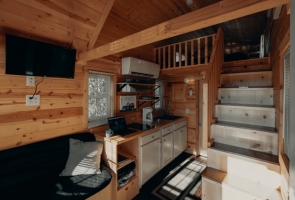There’s nothing wrong with being excited about what we do. There’s nothing wrong with demonstrating that excitement and trying to get it to spread. There’s nothing wrong with showing your knowledge of your industry or your content area of choice. All of the above can work well in your favor. This is true whether you’re a Realtor or a real estate marketing content creator. Those levels of knowledge and excitement do promote engagement, drive conversions, and create an atmosphere of enthusiasm … when used correctly.
After scouring a number of real-estate blogs, both for agents and marketers, I’ve discovered a few things. For starters, many of them are so similar it’s difficult to judge any of them on a best/worst scale. They all seem to follow one of a few content models, and they all make glaring mistakes in the ways they present their content. Today, I want to show you some of the things I’ve noticed and give you some advice on the types of things to steer clear of when developing good real estate blog content.
The five items below represent what I think to be the primary reasons so many real estate blogs have that cookie-cutter, unoriginal feel. Don’t get me wrong; there are bloggers out there enjoying decent levels of success while committing every last one of the content offenses I’m about to list.
As I’ve said before, though, the last thing you want is to produce content that gets lost in the melee of all the other blogs out there vying for good positions in the search engines. You want your voice to be unique. So, with that in mind, how many of these things are you doing in your blog, and how can you do better? I have some advice for you along the way about that, too.
Overemphatic Adjectives
I’ve found this approach to be an increasingly bad way to sell anything, be it a product, a service, or an idea. Lofty and unnecessarily colorful language is a bad content device to use in your blog for several reasons, but these two come quickly to mind. First, even though today’s reader is more driven by emotion than intellect, it’s important to cater to both. Good information is easy to lose in a sea of overused and overstated adjectives and adjectival phrases.
We all know how some of these words have become stigmatized. “Cozy” is read by many as “small.” A house with “distinct character” is usually falling apart or just looks weird for the neighborhood. “Historical” means old and probably also falling apart. Instead of describing the space as “cozy,” why not just describe it in real terms? There is a market for every property. Instead of trying to entice the wrong market, why not speak directly to the ones who might actually be looking for it? This philosophy works well when set against any of the above examples.
Industry Speak
There are terms that homebuyers and those who consume real estate-related content should know. There are also plenty of terms they don’t need to readily understand to make the decision to contact you (or click through, or whatever your conversion strategy entails).
Using too much industry speak in your blog leaves the reader feeling undereducated. Worse, it could come across as condescending. I get wanting to convey that you know your business, but I also get people. Anyone who is going to take the time to read your blog wants you to be able to speak to them.
Don’t drop the ball on this one. Keep the conversation as easy to understand as possible. If the subject dictates using certain terms that readers may not recognize, define them. This has the opposite effect of just steamrolling over people’s intellects with words they don’t know. If you teach them something, they will feel smarter when they’re done reading and will likely come back for more when you publish new content.
Industry Acronyms
This one falls in lockstep with the previous point, so I’ll be brief about it. Never assume that your readers know all the jargon and acronyms that you do. Unless you are blogging to a B2B audience that is already up on the terminology, you either need to ditch the acronyms entirely or take the time to explain what they mean. B2B, for example, means “business to business” for those not in the know, and there are always those in your audience who aren’t.
Wordy Property Descriptions
When blogging about specific properties, developments, complexes, etc., it’s important to not get lost delivering word salad in your descriptions. Even listing descriptions work best when they are brief and succinct. If you’re zeroing in on a specific property for a blog post, there’s probably a good bit more to say about it than the number of bathrooms and bedrooms.
Let’s assume, for a moment, that we aren’t in the middle of a pandemic and that people like to leave home once in a while. What would motivate someone to move into this community? What is there to do when they walk out the door? Sure, it’s fine to talk about bedrooms and bathrooms, but what interesting information can you convey about the property and where it’s situated?
These are important considerations, especially for commercial real estate bloggers who are trying to sell specific properties. Why set up shop here or develop apartments and condos or anything else a commercial buyer might want to do with the building? Stick with the basics about the property. Unanswered questions lead to inquiries, but if the reader has no reason to be interested in the first place, you’re not going to hear from them.
Overselling
Again, I’m speaking most directly to Realtors, but this concept applies to content marketing, as well. We all know the stereotypes about pushy salespeople, and we all know their methods. Keep as much direct language about sales out of your blog as possible. This is also good advice for any industry, but in this instance, it’s crucial.
People don’t make the decision to invest in real estate after reading a blog. However, they do become more interested in talking to the Realtor after reading well-presented and informative content. Keep that word in mind: informative. The goal of your blog is to establish interest in working with you, so leverage the power that exists within the framework of the content. Don’t try to use it for purposes that just won’t get results.
Affordable, High-Quality Real Estate Content
If all of this sounds good, but you just don’t know where to begin, contact us. At BeezContent, we work with a talented group of both staff and freelance writers who know real estate blogging and can help you develop quality blog content that converts. Talk to us today about how we can help you make your real estate blog stand out from the rest.




